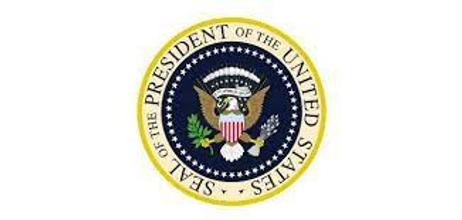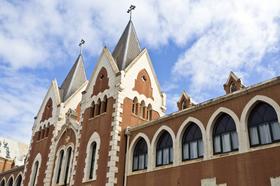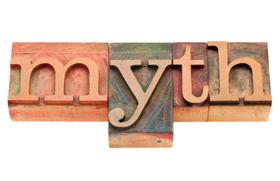In the nineteenth-century education for several of our presidents was strictly hit or miss for a variety of reasons. On the other hand, a couple of presidents enjoyed what you and I know in the 21st century as Ivy League educations. Fortunately for our young nation, most of these men were leaders who were able to guide our country through so uncharted waters and perilous times.
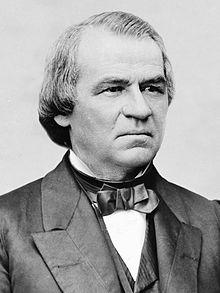 17 - Andrew Johnson
17 - Andrew Johnson
President from April 15, 1865 to March 4, 1869
Born: December 29, 1808, Raleigh, North Carolina
Died: July 31, 1875, Carter County, Tennessee, Tennessee
Political party: Democratic Party
North Carolina native Andrew Johnson succeeded Abraham Lincoln. He had no formal schooling as his family was very poor. His meager educational background notwithstanding, Johnson apparently was a skilled public speaker.
Book Scrolling has a list of books about our 17th president.
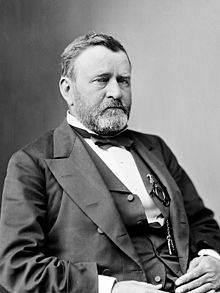 18 - Ulysses S. Grant
18 - Ulysses S. Grant
President from March 4, 1869 to March 4, 1877
Born: April 27, 1822, Point Pleasant, Ohio
Died: July 23, 1885, Wilton, New York
Political party: Republican Party
Ohio native Hiram Ulysses Grant appears to have had formal schooling from the age of five. He attended a subscription school, i.e., a school which his parents paid for him to attend, as well as two private schools, the Maysville Seminary, and John Rankin's Academy. He matriculated to West Point. Ron Chernow's book about President Grant was #1 on the New York Times bestseller list.
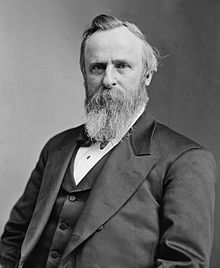 19 - Rutherford B. Hayes
19 - Rutherford B. Hayes
President from March 4, 1877 to March 4, 1881
Born: October 4, 1822, Delaware, Ohio
Died: January 17, 1893, Fremont, Ohio
Political party: Republican Party
Ohio native Rutherford Hayes had a solid primary and secondary education at common schools in his hometown, at the Methodist Norwalk Seminary in Norwalk, Ohio and at The Webb School, in Middletown, Connecticut. He matriculated to Kenyon College and subsequently Harvard Law School. Questia has an extensive collection of materials about our 19th president.
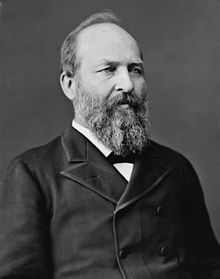 20 - James A. Garfield
20 - James A. Garfield
President from March 4, 1881 to September 19, 1881
Born: November 19, 1831, Moreland Hills, Ohio
Died: September 19, 1881, Elberon, New Jersey
Political party: Republican Party
Ohio native James Garfield's early education was minimal by all accounts. He finally did attend Geauga Academy before matriculating to Western Reserve Eclectic Institute. He did manage to earn a degree from Williams College in Massachusetts. Add Candice Millard's biography of President Garfield, Destiny of the Republic: A Tale of Madness, Medicine and the Murder of a President, to your reading list.
 21 - Chester A. Arthur
21 - Chester A. Arthur
President from September 19, 1881 to March 4, 1885
Born: October 5, 1829, Fairfield, Vermont
Died: November 18, 1886, Manhattan, New York
Political party: Republican Party and Whig
The circumstances of Vermont native Chester Arthur's early education are not clear. We do know that he attended the Lyceum of Union Village and matriculated to Union College in Schenectady, New York. He did graduate studies at State and National Law School and was admitted to the New York Bar. Read more about our 21st president in the American Presidents Series, Chester Alan Arthur: The American Presidents Series: The 21st President, 1881-1885.
.jpg) 22 & 24 - Grover Cleveland
22 & 24 - Grover Cleveland
President from March 4, 1893 to March 4, 1897
Born: March 18, 1837, Caldwell, New Jersey
Political party: Democratic Party
New Jersey native Grover Cleveland attended Fayetteville Academy and the Clinton Liberal Academy. He clerked at a law firm and was admitted to the New York Bar in 1859. Best Presidential Bios has a list of books about our only president who served two non-consecutive terms.
 23 - Benjamin Harrison
23 - Benjamin Harrison
President from March 4, 1889 to March 4, 1893
Born: August 20, 1833, North Bend, Ohio
Died: March 13, 1901, Indianapolis, Indiana
Political party: Republican Party and Whig
Ohio native Benjamin Harrison was home-schooled before attending Farmer's College and Miami University. He went on to study law and was admitted to the Ohio Bar in 1854.
Book Scrolling has a list of seven books about President Harrison.
25 - William McKinley
President from March 4, 1897 – September 14, 1901
Born: January 29, 1843, Niles, Ohio
Died: September 14, 1901, Buffalo, New York
Political party: Republican Party
Ohio native William McKinley attended Poland Seminary before matriculating to Allegheny College. He went on to study law at Albany Law School and was admitted to the Ohio Bar in 1867. Robert Merry's offers an in-depth examination of our 25th president in his book, President McKinley: Architect of the American Century.
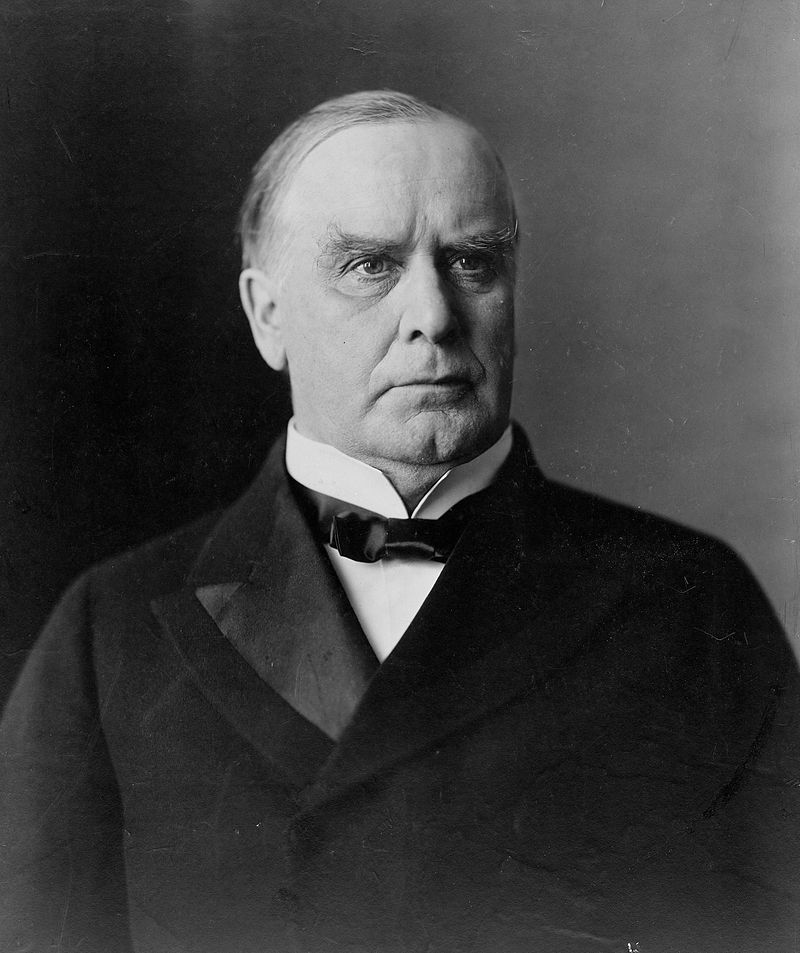 26 - Theodore Roosevelt
26 - Theodore Roosevelt
President from September 14, 1901 – March 4, 1909
Born: October 27, 1858, New York City, New York
Died: January 6, 1919, Oyster Bay, New York
Political party: Republican Party
New York native Theodore Roosevelt was mostly home-schooled. He attended Harvard College from which he graduated in 1880. Signature Reads offers a list of The 11 Best Teddy Roosevelt Books According to T.R. Experts.
 27 - William Howard Taft
27 - William Howard Taft
President from March 4, 1909 to March 4, 1913
Born: September 15, 1857, Cincinnati, Ohio
Died: March 8, 1930, Washington, D.C.
Political party: Republican Party
Ohio native William Howard Taft received his secondary education at Woodward High School in Cincinnati. He matriculated to Yale College following which he attended Cincinnati Law School.
Henry F. Pringle's two-volume biography on our 27th president, The Life and Times of William Howard Taft: a Biography, is a thorough look at the man.
More Reading
- 17 Great Books About American Presidents for Presidents’ Day Weekend
- Best Sellers in US Presidents
- The American Presidents Series
Questions? Contact us Twitter. @privateschoolreview

